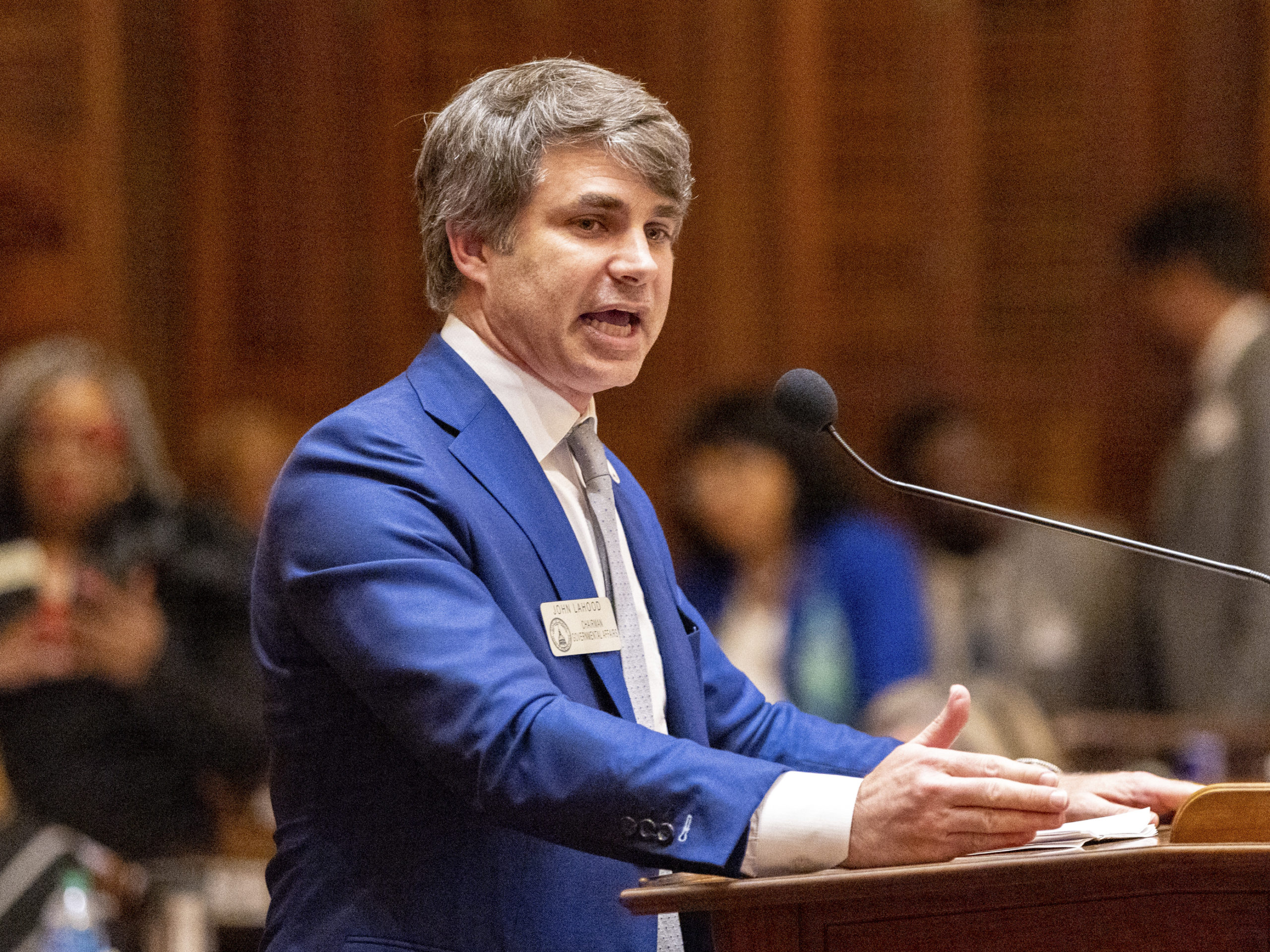
State Rep. John LaHood, R-Valdosta, speaks in favor of Election Bill SB 189, regarding ballot scanners, at the House of Representatives in the Capitol in Atlanta on Sine Die, the last day of the legislative session, Thursday, March 28, 2024. LaHood is the sponsor of the bill in the House. (Arvin Temkar/Atlanta Journal-Constitution via AP)
In the heart of Georgia, where magnolia trees sway in the gentle breeze and the echoes of history linger in the air, a new chapter in American democracy began to unfold. It was a story of controversy and contention, as lawmakers grappled with the intricacies of electoral reform that would shape the future of the nation.
In the hallowed halls of the Georgia State Capitol, legislators engaged in heated debates that echoed through the marble corridors. On one side stood those advocating for sweeping changes to election laws, citing concerns over voter integrity and security. On the other side, voices rang out in defense of voting rights and access, warning against measures that could disenfranchise marginalized communities.
After days of impassioned deliberation, the Georgia lawmakers reached a pivotal moment. With the stroke of a pen, they approved a set of new election rules that would reverberate far beyond the borders of the Peach State. Among the provisions were stringent identification requirements for absentee ballots, restrictions on early voting hours, and enhanced powers for state officials to intervene in local election administration.
As news of the new election rules spread across the nation, it ignited a firestorm of controversy and debate. Advocates hailed the measures as necessary safeguards against voter fraud, asserting that they would restore trust and confidence in the electoral process. Critics, however, decried the rules as thinly veiled attempts at voter suppression, arguing that they would disproportionately impact communities of color and low-income voters.
With the 2024 presidential contest looming on the horizon, the implications of Georgia’s new election rules loomed large. Political pundits speculated about the potential impact on the upcoming election, as candidates and campaign strategists scrambled to adapt to the changing landscape.
In the midst of the swirling political storm, ordinary Georgians found themselves at the center of a pivotal moment in history. From bustling city streets to sleepy rural towns, conversations about democracy and civic engagement echoed across the state. Voter registration drives surged, as citizens mobilized to exercise their rights and make their voices heard.
As election day drew nearer, the eyes of the nation turned to Georgia once again. Amidst the backdrop of rolling hills and sprawling cities, voters lined up at polling stations to cast their ballots in a contest that would shape the future of the country. Despite the challenges and controversies that surrounded them, they remained steadfast in their commitment to democracy, united by a shared belief in the power of the ballot box to effect change.
And so, against the backdrop of Georgia’s storied history and uncertain future, the stage was set for a new chapter in American democracy to unfold. As the nation watched and waited with bated breath, the people of Georgia stood poised to chart the course of their own destiny, armed with nothing more than a simple yet profound act: the power to vote.




